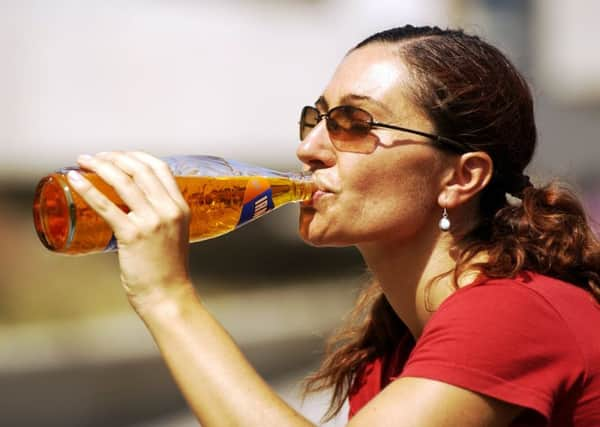Taking the collaborative approach to recycling
This article contains affiliate links. We may earn a small commission on items purchased through this article, but that does not affect our editorial judgement.


Many readers will have happy memories of spending childhood summers collecting Irn-Bru bottles to claim back a few pennies. It’s a great reminiscence, conveying sunshine and a simpler time.
It’s that memory most people think of when they are asked about whether Scotland should look again at introducing a deposit return system. When the idea is suggested, with that context, many members of the public ask who could possibly be against that.
• READ MORE: Irn-Bru to end 30p glass bottle returns
Advertisement
Hide AdAdvertisement
Hide AdActually, there are many groups with very significant concerns about such a proposal. From farmers to supermarkets, small shop owners to manufacturers. Even AG Barr, which ran that glass Irn-Bru bottle scheme, ended it in 2015 – citing that it was no longer viable. What is interesting is that while many people start off acknowledging the superficial appeal of deposit return, they soon change their mind when the full implications become clear.
That starts with the impact on ordinary families. While it’s nice to think about getting some money back for recycling, the reality is the customer must pay that extra deposit when they first buy the product. A 20p deposit adds 40 per cent onto the price of a pint of milk. A 12-pack of soft drinks (for example water for kid’s lunch boxes) would incur a £2.40 surcharge. With food prices already affected by inflation that would be a further hit to shopper’s grocery bills.
Furthermore, that initial deposit is never really recovered. While you can notionally reclaim the 20p when you return the milk container, the reality is that you then must buy another pint of milk, requiring you to re-spend the deposit. On top of that of course if a customer doesn’t return the container then if they want to buy another drink they must pay another deposit – which could mount up to tens of millions a year per a 2014 report for Zero Waste Scotland. To be clear, a Scottish deposit return system would make the cost of grocery shopping in Scotland more expensive than elsewhere in the UK.
That money is at the heart of how such a scheme is funded. It comes from consumers, ordinary families who are already seeing their incomes hit by rising inflation and other costs. It’s those struggling workers who will be worst hit by this bottle tax.
But it’s bad for retailers as well. Smaller shops and town centre stores would face a brutal choice. Either put aside profitable space on the shop floor to create storage for large number of bottles and cans, or face the reality that consumers would go elsewhere to reclaim their deposits. Similarly, those small stores would have to deal with the complexity of returning deposits to customers, and then having to reclaim the accrued deposit value themselves.
Larger shops would also face these problems – albeit they would be unlikely to have any choice over opting in. However, for a supermarket the scale of product being returned is significant. On a Saturday morning when families are doing the weekly shop, the supermarket would be expected to accept thousands of unclean waste containers. The outcome would be customers paying more for their groceries, and having to spend time in queues to reclaim the deposit.
Advertisement
Hide AdAdvertisement
Hide AdThose shops would be expected to purchase large deposit return vending machines, which are manufactured outside Scotland. The SRC has previously estimated installing such machines would cost the Scottish retail industry more than £80 million. That’s an enormous capital cost for an industry already facing enormous challenges due to high public policy costs and enormous digital change.
For retailers, this is the very last thing needed. Our industry is focused on investing for the future. Making decisions which increase the productivity of our stores and ensuring they are adapted for the modern multi-channel shopping world. Introducing a deposit scheme would force retailers to devote limited capital investment on retro-fitting stores. That will in the short-term remove the opportunity to make marginal stores profitable, and in the long term puts both shops and jobs at risk.
What makes this so frustrating is it’s unnecessary. In Scotland, we already have kerbside household recycling. Unlike countries who brought in deposit systems decades ago, we made very significant investment in a kerbside system funded through taxation which already collects these containers.
What Scotland needs is a real debate about how we move forwards to a modern circular economy. That should be focused on a comprehensive plan which considers the whole supply chain – and developing sustainable structures and processes which will help Scotland improve recycling and achieve our climate change targets. Ironically a deposit scheme makes that harder by taking away the focus from real solutions affecting all streams to focus on one very visible, but arguably less crucial element.